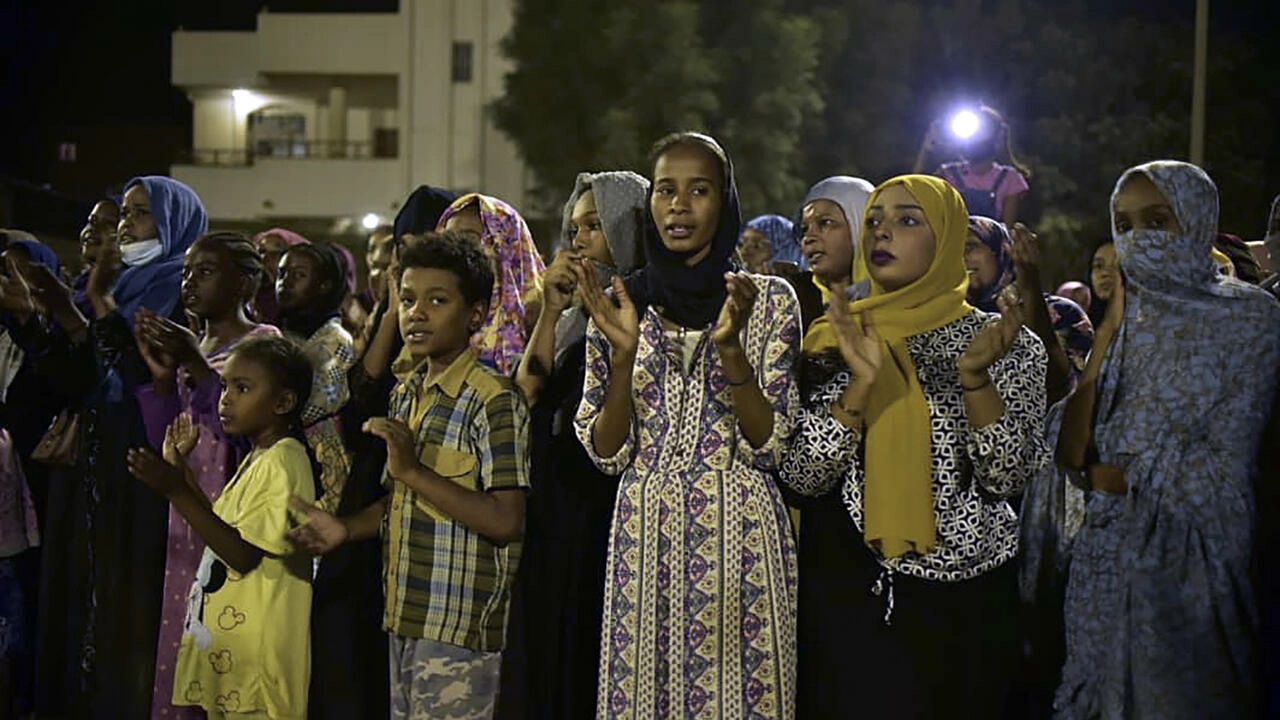Khartoum (AFP)-Furious anti-coup Sudanese protesters vowed to press ahead Friday with a campaign of civil disobedience, following deadly clashes with security forces during demonstrations against a widely condemned military takeover.
At least eight people have been killed and 170 wounded in protests since the army’s power grab on Monday, including one protester who died in violence overnight Thursday, when security forces fired tear gas and rubber-tipped bullets, according to medics.
“Confronting peaceful protesters with gunfire is something that should not be tolerated,” said protester Haitham Mohamed in Khartoum. “It will not make us back down; it only strengthens our resolve.”
General Abdel Fattah al-Burhan — Sudan’s de facto leader since the 2019 ouster of veteran autocrat Omar al-Bashir after huge youth-led protests — on Monday dissolved the country’s civilian-led fragile government and ordered the arrest of several top officials.
Sudan had been ruled since August 2019 by a joint civilian-military council, alongside Prime Minister Abdalla Hamdok’s administration, as part of the now stalled transition to full civilian rule.
Hamdok has been placed under effective house arrest, while other civilian leaders are in military detention. The capital has been rocked by days of unrest and is bracing for major demonstrations on Saturday.
Burhan has insisted the military’s takeover “was not a coup” but only meant to “rectify the course of the Sudanese transition”.
On Friday, soldiers from the regular army as well as troops from the much-feared paramilitary Rapid Support Forces patrolled the streets of Khartoum, as well as the twin cities of Khartoum-North and Omdurman, across the Nile river from the capital.
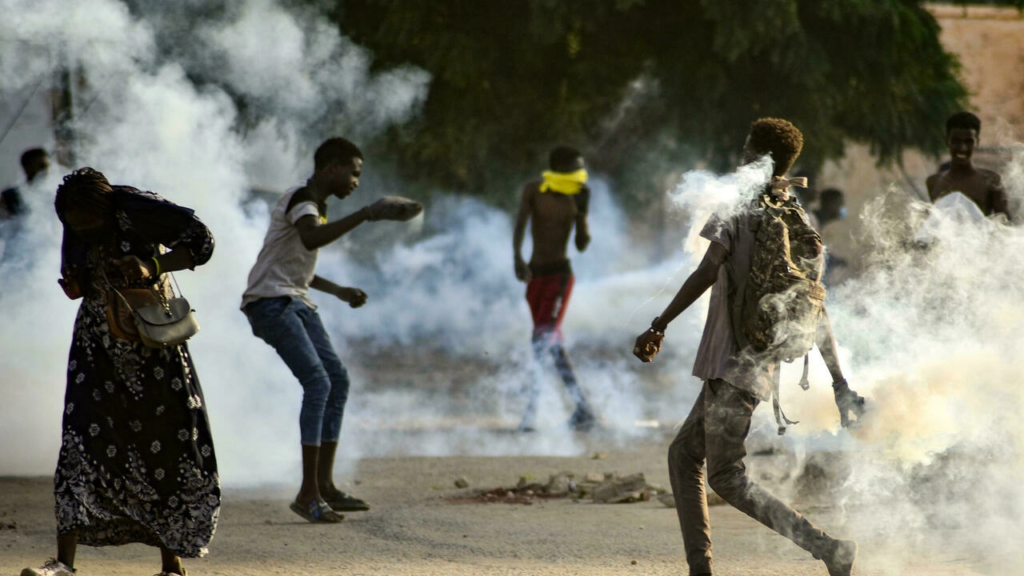
“The military is no different than the previous regime,” protester Mohamed added.
On Friday, security forces tore down protest barricades of tyres and rocks blocking roads, and carried out random searches of people and cars.
Internet has been largely blocked, phone calls intermittently disrupted, and shops largely closed in Khartoum. Many civil servants are refusing to work until the transitional government is restored.
‘Grave setback’
The coup was the latest to have hit the impoverished country, which has experienced only rare democratic interludes since independence in 1956 and spent decades riven by civil war.
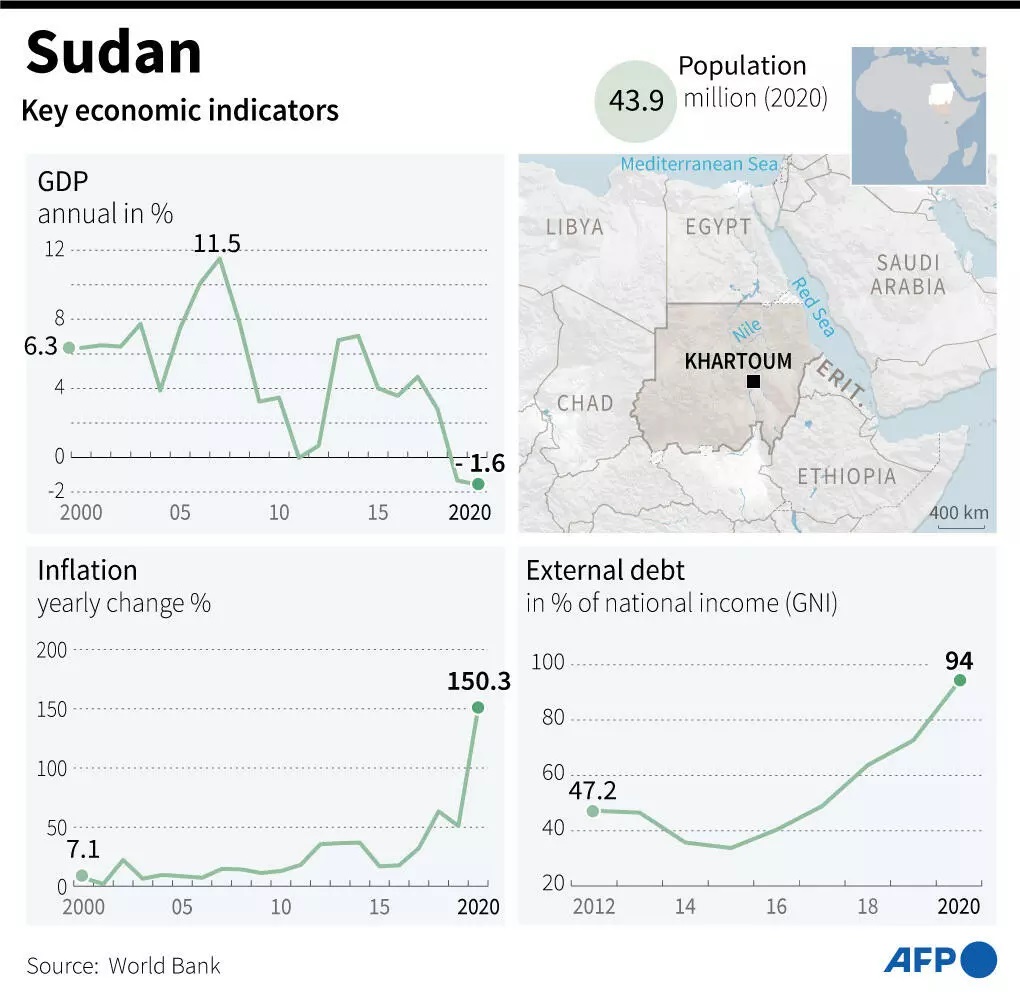
It prompted international condemnation and several punitive measures, which will hit a country already mired in a dire economic crisis hard.
The coup was a “grave setback”, US President Joe Biden said Thursday.
“Our message to Sudan’s military authorities is overwhelming and clear: the Sudanese people must be allowed to protest peacefully and the civilian-led transitional government must be restored,” Biden said.
The UN Security Council on Thursday expressed “serious concern” and urged all sides “to engage in dialogue without pre-conditions”.
The World Bank and the United States have frozen aid, while the African Union has suspended Sudan’s membership over what it termed the “unconstitutional” takeover.
Foreign Minister Mariam al-Mahdi, the daughter of Sudan’s last democratically elected prime minister who was ousted in Bashir’s 1989 military coup, is one of the few civilian leaders not in detention, and has become a leading critic of Burhan.
“We clearly reject any coup..we also resist with all civil means,” she told Al Arabiya television.
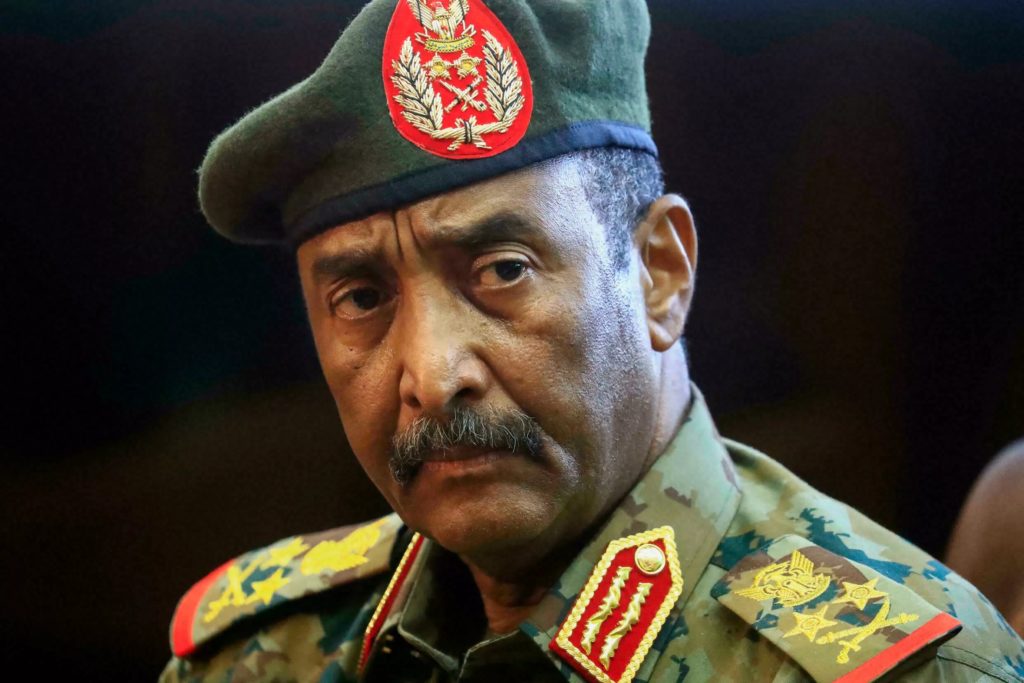
Multiple Sudanese diplomatic missions including in the US, China and to the European Union have openly rejected the military seizure of power, prompting Burhan to sack them.
Earlier this week, soldiers seized control of the state news agency SUNA, forcing journalists out, while on Friday, they targeted the Al Democraty newspaper.
The army’s move came on the back of widening cracks between factions leading the post-Bashir transition.
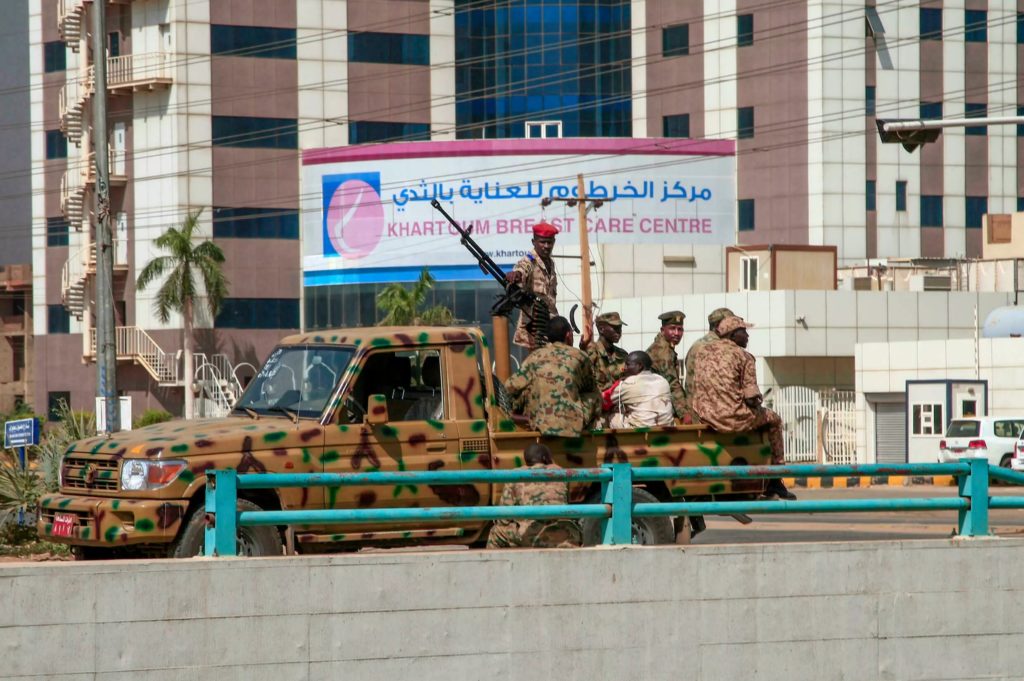
Sudanese security forces deploy in the capital Khartoum on October 25 – AFP
Tensions soared following a failed September 21 coup, as well as blockade of Sudan’s key port in the east by anti-government protesters.
The main civilian Forces for Freedom and Change bloc, which spearheaded the anti-Bashir protests two years ago and chose Hamdok as prime minister, splintered into two factions, with breakaway one backing a military rule.
“The civilian government must go back to carry out its duties,” leaders from the mainstream FFC said in a statement. “All political detainees should be released.”

